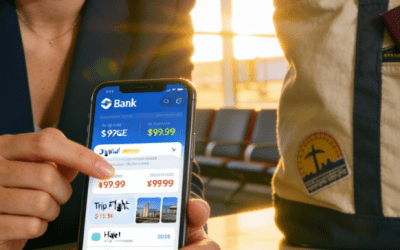Whether for business or pleasure, travelers are booking airline seats. In fact, as European Union borders reopened on July 1, Ryanair reported it is flying 40% of its 10,000 routes and EasyJet plans on returning to 75% capacity by August. An increase in travelers is good news for airlines that have been hard hit during the pandemic. As the world reopens, many people are eager for a getaway as a mental reset from months of confinement.
Of course, summer was a traditional time for vacations, but for those considering an international flight, it’s been especially difficult to know where you can travel. Plus, many already had a trip booked pre-shutdown and are now concerned about trip cancellations or not being able to travel to certain countries.
As a result, Google trends show an uptick in the search volume for “travel restrictions” as people search for information. Travelers need answers.
In our previous post on restoring the traveler’s confidence, we covered some of the timely questions people are asking. Some of those questions include if they should (or can) go ahead with planned summer vacations. They’re wondering if it’s safe to travel, where they can go, and what expectations are on quarantine.
Of course, the answer to these questions is a variation of “it depends.” It depends on the regulations of both your origin point and your destination, it depends on what you can do there, and it depends on how safe is going to be while you are there. One of the first questions potential international travelers ask is if they can even travel to their desired destination. For example, if British travelers want to vacation in Spain, are they able to do so?
How to make sense of the changing information
The information is confusing and the lack of clarity makes it less likely for travelers to feel confident.
In June, British travelers were required to quarantine for 14 days on returning to Britain. However, by early July, that changed provided the traveler goes to a country with a “green” or “amber” designation.Yet, the destination may require their own 14-day quarantine. With many places operating on a week-by-week basis, it’s essential to have current information for your guests.
Technology can help airlines, online travel agencies and hotels communicate such regulations accurately with their guests. Iberia Airlines for instance is using one of these technologies to keep their customers informed about the changing restrictions and border openings, crucial information in these uncertain moments where travelers need answers.
They offer a link for exit and entry requirements on their homepage. With a click, you go to the map powered by Smartvel where you can navigate to discover the latest regulations. From there, you can put in your origin and destination countries for current regulations issued by local authorities. It shows any exceptions, too.

Smartvel solution uses IATA’s official information and enhances it with many other local government information to guarantee the reliability of the content. They perform manual checks every day to keep up to date of the changing regulations.
Besides travel restrictions, potential travelers want to know about the destination, for example:
- What will there be for them to do when they arrive? After all, no one wants to go on a beach vacation only to discover the beaches are closed when they arrive.
- Will restaurants be open?
- What about shopping?
- What safety precautions are the airlines and hotels taking?
United Airlines’s interactive map tool powered by Smartvel provides the entry restrictions but also the leisure options available in each destination, both domestic and international.

Some are offering flexible solutions such as offering a liberal cancellation policy or buy now, travel later programs. Aggregators like Scott’s Cheap Flights are sending subscribers deals on travel for later 2020 and early 2021. Whereas, Thailand is offering a “Buy Now, Stay Later” campaign for certain hotels.
One of the best ways the travel industry can improve the guest experience right now is by restoring confidence. Offering answers to the travelers, flexibility and transparency will help stimulate bookings now and for the future.
Travelers want to feel safe, and they want their travel to be easy. When your travel organization provides up to the minute and accurate information about the current travel restrictions and regulations, you’re helping to provide peace of mind to your guests.
From the inspirational phase of dreaming of a getaway to booked tickets, plug and play integrable solutions can help airlines, OTAs, hotels and other travel players keep their customers informed of the latest restrictions to travel, what’s safe and what’s not, the leisure options in-destination, how safe is a region today and how it will be in the coming days, and other relevant travel content. And best of all, it can be implemented on your website in a matter of days.





